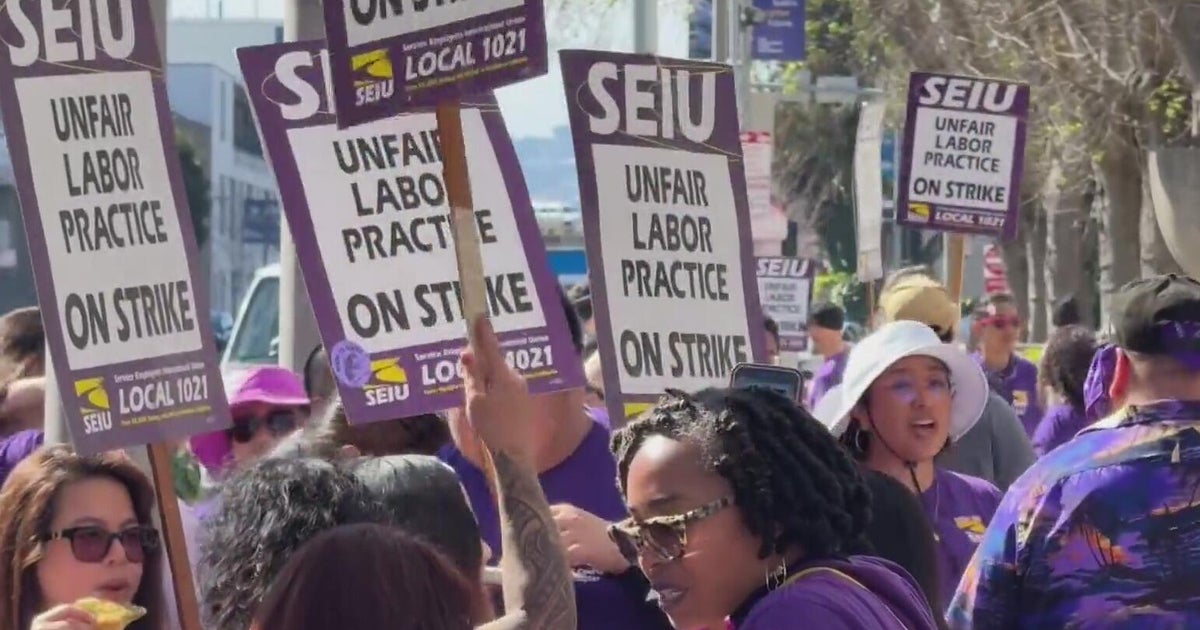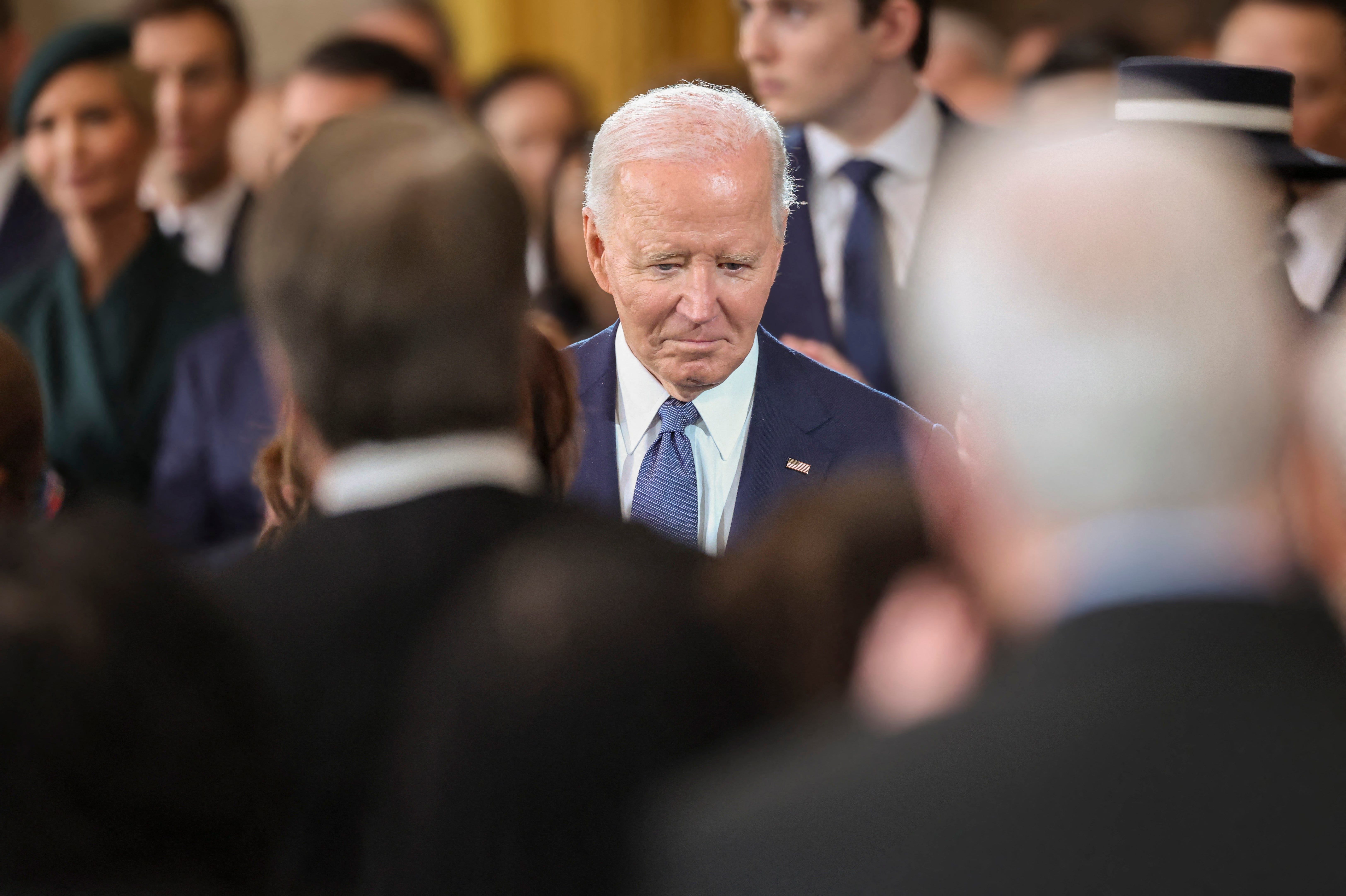How Joe Biden's order on noncompetes could make it easier to quit your job
Joe Biden has sent a clear message to businesses: Make it easier for workers to quit — or the government will do it for you.
The president's July 9 executive order takes aim at an increasingly common and oft-criticized feature of the labor market: noncompete agreements. Under these restrictive agreements, which cover an estimated one-fifth to one-half of private-sector workers, employees give up future work in their industry as a condition of keeping their current job.
Now, Mr. Biden has directed the Federal Trade Commission to "curtail the unfair use" of such agreements and any others "that may unfairly limit worker mobility."
Those few words take aim at "one of the most powerful tools that employers have to restrict their employees and what they do after employment ends," according to attorneys for Fisher Phillips, an employer-side law firm. "This is a potential game changer for employers nationwide," they said on a recent podcast.
The coronavirus pandemic has drawn fresh criticism for these agreements.
"In the context of the pandemic, which caused millions of people to be laid off, it's safe to say at least a share of those workers are constrained in pursuing other opportunities during this crisis," said John Lettieri, head of the Economic Innovation Group, a think tank that advocates against noncompetes.
Indeed, at least four employers — including an accounting firm and a real estate brokerage — have tried to enforce noncompetes against workers they've laid off, with the lawsuits making their way through the courts.
Advocates of change hope the FTC will curb these agreements for good. Short of a ban, they point to recent state laws and a growing body of research as a guide for what they call the most urgently needed changes to restrictive work contracts.
Here's how undoing these contracts could change workplaces almost everywhere in the coming years.
Higher pay for hourly workers
Low-paid workers suffer the most from restrictive work agreements, which can forbid workers like janitors, security guards, sandwich makers and phlebotomists from leaving for better pay — even though these entry-level workers are least likely to have access to trade secrets the agreements supposedly protect.
"When your mobility is hampered, your ability to negotiate for better conditions in your current employment is also hampered," said Rachel Arnow-Richman, a law professor at the University of Florida who has extensively studied noncompete agreements.
About 3 in 10 workers making less than $13 an hour work for employers that require these agreements, according to research from the left-leaning Economic Policy Institute.
In the past few years, a dozen states have moved to exclude low-paid workers from restrictive agreements. The FTC could do the same, either excluding workers who make under a certain dollar amount, or perhaps those with hourly jobs or with less education.
"I think no one would be surprised to see the FTC quickly support that type of limitation. The question those of us in the field have, and are waiting and watching to see, is how much further they will go beyond prohibiting these agreements with vulnerable workers," said Arnow-Richman.
When noncompetes are banned, worker pay rises. Oregon's ban of noncompetes for hourly workers back in 2008 led hourly wages for all workers to rise between 2% and 3%, according to one study. (The improvement for workers who were actually subject to noncompetes was even greater, possibly as high as 20%, according to the study.)
More mobility for high-paid workers?
Many worker advocates say the government should go further, and limit noncompetes for more than just those who are low-paid.
"Most people live paycheck to paycheck, even if they're not very low wage and need to be able to make a living," said Terri Gerstein, director of the state and local enforcement program at the Harvard Law School Labor and Worklife Program.
Gerstein noted there were other legal ways, including less restrictive contracts, that businesses could use to protect trade secrets. "To prevent someone from earning a living in their field, where they live, with any other employer than yourself, is far too harsh and too blunt an instrument for addressing it," she said.
Washington state last year banned noncompetes for anyone earning under $100,000, or under $250,000 as an independent contractor. Hawaii took the opposite track and got rid of noncompetes for tech workers only, which resulted in a 4.2% pay bump for new hires and a 12% increase in worker mobility.
It's also possible the administration will look beyond noncompete agreements, said John Siegal, a partner at law firm BakerHostetler and head of its Noncompete and Trade Secrets group. The wording of Mr. Biden's recent order allows the FTC to examine a slew of restrictive agreements, including: nondisclosure agreements; nonsolicitation agreements, in which employees agree not to do business with their former employer's clients; and no-poach agreements, in which businesses agree not to recruit each others' workers.
"If they do that, there's going to be a really comprehensive inquiry about the nature of employment, and what kinds of duties employees owe companies when they leave," Siegal said.
More transparent job listings
Currently, many employees who sign noncompete agreements don't know they'll do so until they show up for their first day of work and receive a packet of paperwork from their new HR department. One study showed that around one-third of workers sign these agreements after accepting a job, and only 10% negotiate.
To fix this, the FTC could implement some transparency requirements. For instance, it could require employers to advertise in job listings that certain jobs will come with noncompete agreements, and that the employee can negotiate such agreements.
"No more foisting noncompetes on people three, five, eight years into their jobs and saying, 'Now you've gotta sign this or we'll let you go,'" Siegal said. "That's a pretty heavy-handed approach."
Some states already demand this. Illinois and Massachusetts, for instance, require a business to notify employees that they'll have to sign a noncompete, and that they have the right to consult a lawyer, at least 10 business days before signing.
Fines — or lawsuits — for bad employers
Some workers advocates say banning coercive contracts isn't enough, and that the FTC should penalize employers who overuse these agreements.
As evidence, they point to California, where noncompete agreements aren't enforced, but most workers don't know that. As a result, employers in California use these restrictive contracts just as much as employers elsewhere in the U.S., and they have their desired effect: scaring workers away from leaving for better jobs.
"There's no disincentive for the employer to include it in the employment contract. The worst thing that would happen is a court would declare [the noncompete] void," said Harvard's Gerstein. "There needs to be a disincentive to employer overreach."
In addition to government fines for employers who misbehave, the FTC could allow individual workers to sue if they believe a business broke the law. That's how most workplace laws — including laws governing pay and forbidding discrimination — are enforced, Gerstein noted.
Pay after the job is over
The FTC could also decree that if companies want to stop employees from working elsewhere, they must pay for that privilege. Massachusetts recently passed such a law, requiring employers to pay 50% of an ex-worker's salary while they're sitting out the job market. The law also excludes interns and workers under 18 from noncompetes.
Such a provision, dubbed "garden pay," would be another cost for the employer to bear, forcing them to be more selective about when to enforce it.
It's not just workers and their future employers who would benefit from doing away with noncompetes. Business formation— which has surged in the pandemic — could also benefit if workers weren't discouraged to pursue startups in a former employer's field.
"There's a very conservative free-market reason to be suspicious of how noncompetes are used: Competition is important fuel to the economy," Lettieri said. "This affects tens of millions of workers; it's not a niche agreement only for high-placed executives."
University of Florida's Arnow-Richman agrees: "Just as we want consumers to have choice about where they market the app they develop, or whether their data is shared or not, we also want workers to have choice as to where they work and what their terms of employment are," she said. "A worker's right to find a better paid job, one that offers more opportunities, more training, is not just something that our system allows, it's the heart of what our labor market is supposed to encourage."



